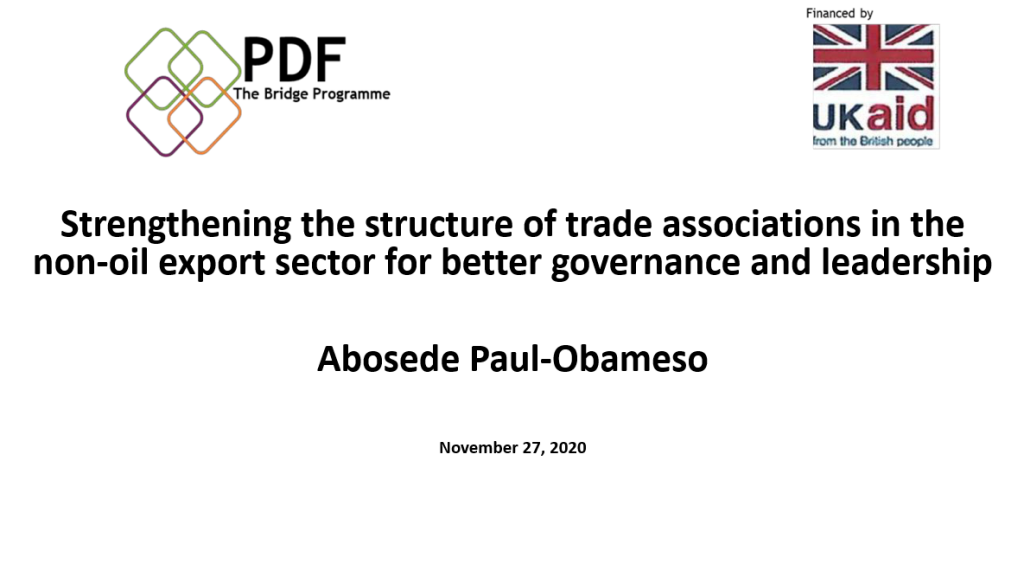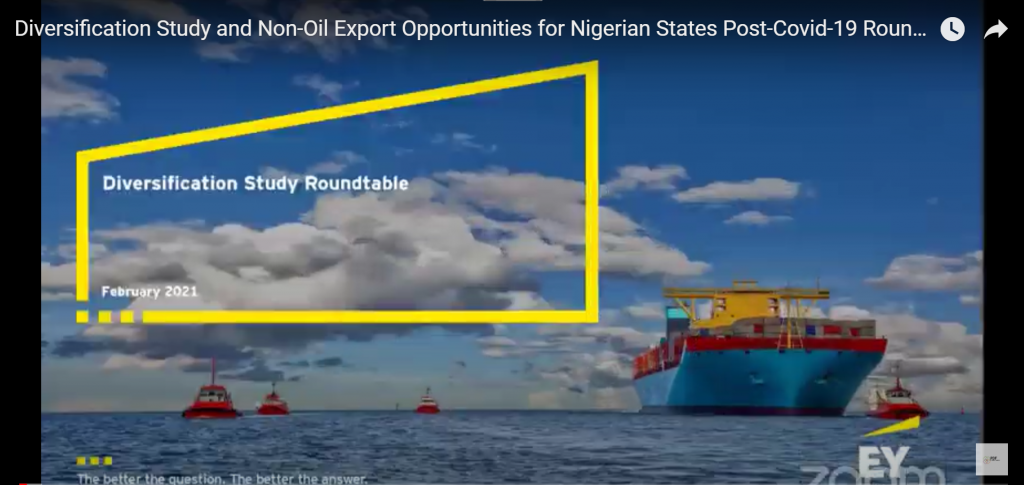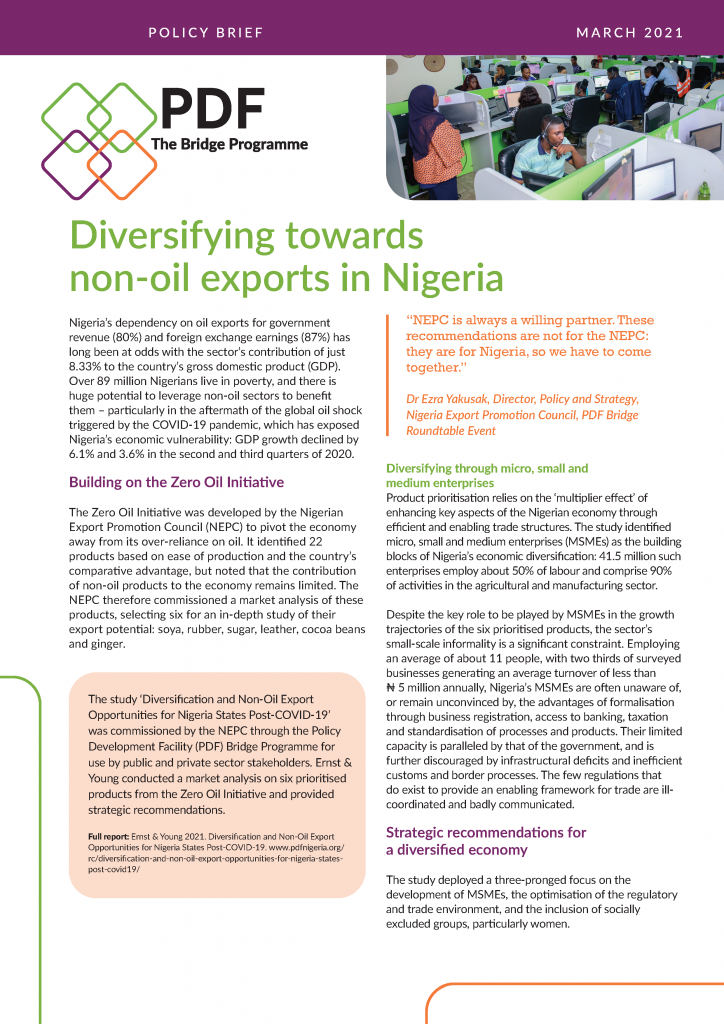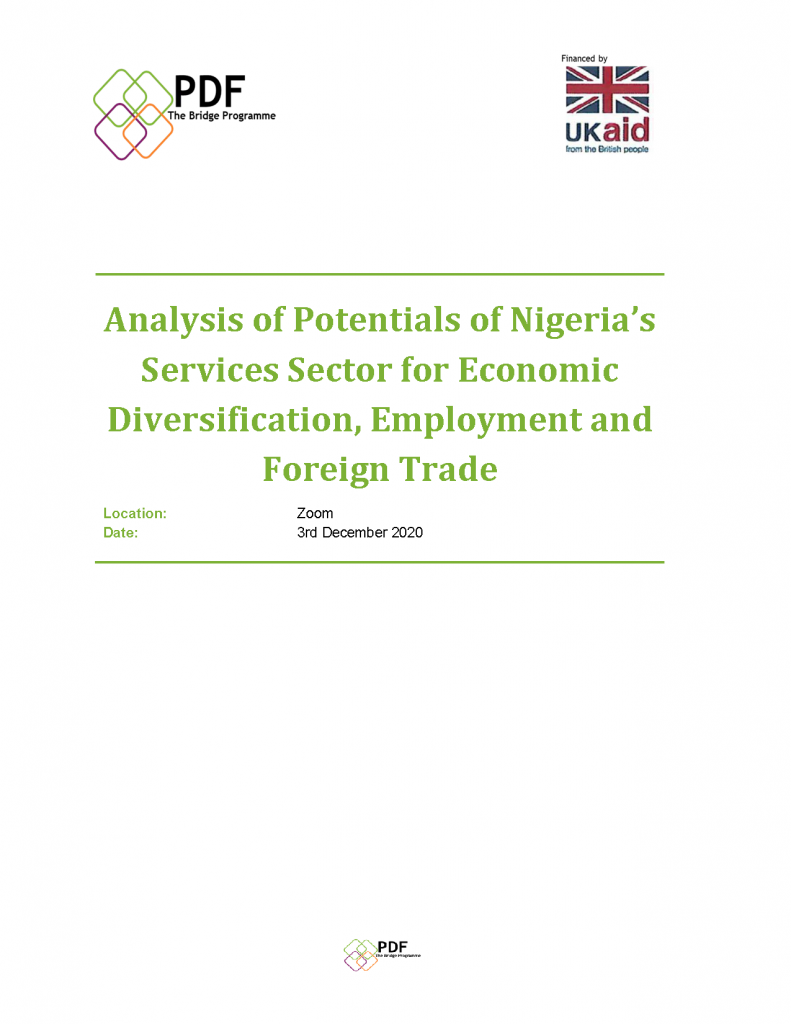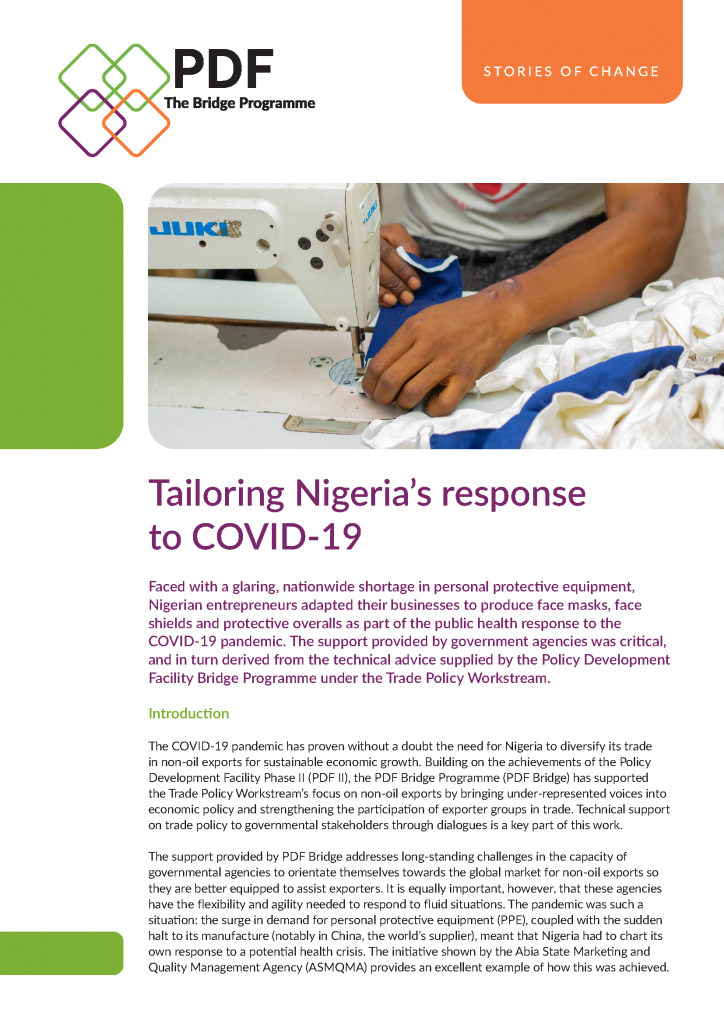Over 80% of Africa’s exports are shipped overseas mainly to the European Union (EU), China and the US, with the continent trailing behind its counterparts in intra-regional trade at 17% compared to Europe at 69% and Asia at 59%. There are huge benefits in establishing a free trade area among the 1.3bn people (accounting for Africa’s population) with a combined GDP of US$ 2.5 trillion from 54 countries. Free trade could create millions of jobs and reduce unemployment among the continent’s teeming youth population as free trade could be a catalyst for structural change and economic development. Read about how PDF II contributed to Nigeria’s decision to sign up to the AfCFTA.
AfCFTA – Nigeria Signs Up
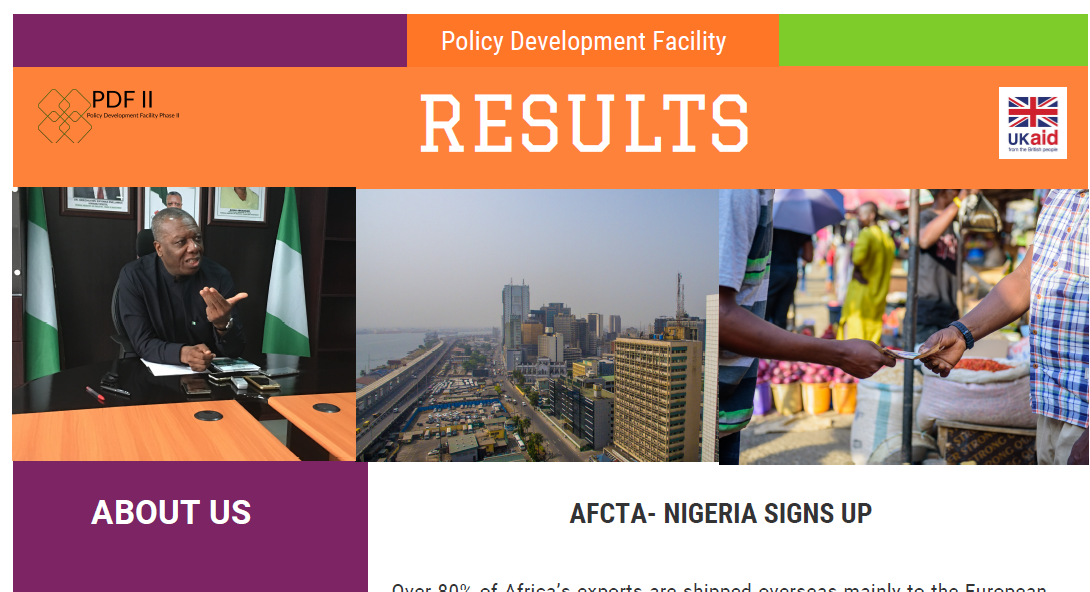
Associated resources
This is a presentation from the second day of the Trade Associations capacity building titled – Strengthening the structure of Trade Associations in the Non-oil Export sector for better Governance and Leadership. It covers Member Relations & Communication, Advocacy and Stakeholder Management, Fundraising & Financial Management as well as Leadership & Corporate Governance.
The Policy Development Facility Bridge program (PDF Bridge) held a Trade Policy Roundtable to discuss the findings and recommendations from its recent study titled “Diversification and Non-oil Export Opportunities for Nigerian States Post-Covid19”.
The objectives of the policy roundtable were;
- To provide a forum for relevant stakeholders to learn about and discuss the findings from the Export Diversification study;
- Through discussions, generate recommendations on necessary actionable steps towards reforms, process restructuring, elimination of various challenges identified in the study, and implementation of the study recommendations.
The study ‘Diversification and Non-Oil Export Opportunities for Nigerian States Post-COVID-19’ was commissioned by the NEPC through the Policy Development Facility (PDF) Bridge Programme for use by the public and private sector stakeholders. Ernst & Young conducted a market analysis on six prioritised products from the Zero Oil Initiative and provided strategic recommendations.
PDF Bridge has now developed a policy brief for stakeholders to highlight the key issues and recommendations. The full study can be accessed here.
A roundtable event on the potentials of exporting the services sector in Nigeria. At the Roundtable, it was noted that among business owners and exporters, there is little understanding of what services export entails. Many businesses engage in service exports but are not aware of this. Understanding the four modes of services – Cross border trade, Consumption abroad, Commercial presence, and Presence of natural persons – is important for business growth. To achieve this, stakeholders including the NEPC will need to conduct capacity building and sensitisation workshops for exporters, working with relevant business associations.
With the global COVID-19 pandemic came the need for local manufacturers to step up to the challenge and produce face masks, face shields, and PPEs due to dwindling supplies caused by high demand the world over. The support provided by government agencies to these entrepreneurs was critical, this in turn was derived from the technical advice supplied by the PDF Bridge programme under the Trade Policy Workstream through dialogues, studies, and roundtable events. The workstream focuses on non-oil exports by bringing underrepresented voices into economic policy and strengthening the participation of exporter groups in trade. The workstream engaged with representatives of Abia State Government during its dialogues particularly with the Director-General of the Abia State Marketing and Quality Management Agency (ASMQMA). This engagement led to increased capacity and redirection of strategy for the Aba Textile cluster in the production and distribution of finished goods. With help from the State Government’s agency on quality and standardization, Abia State Marketing and Quality Management Agency (ASMQMA), tailors generated an estimated $4-5million for the Nigerian economy from Abia State alone from the production of PPEs. This created a 110% increase in tailoring personnel.

